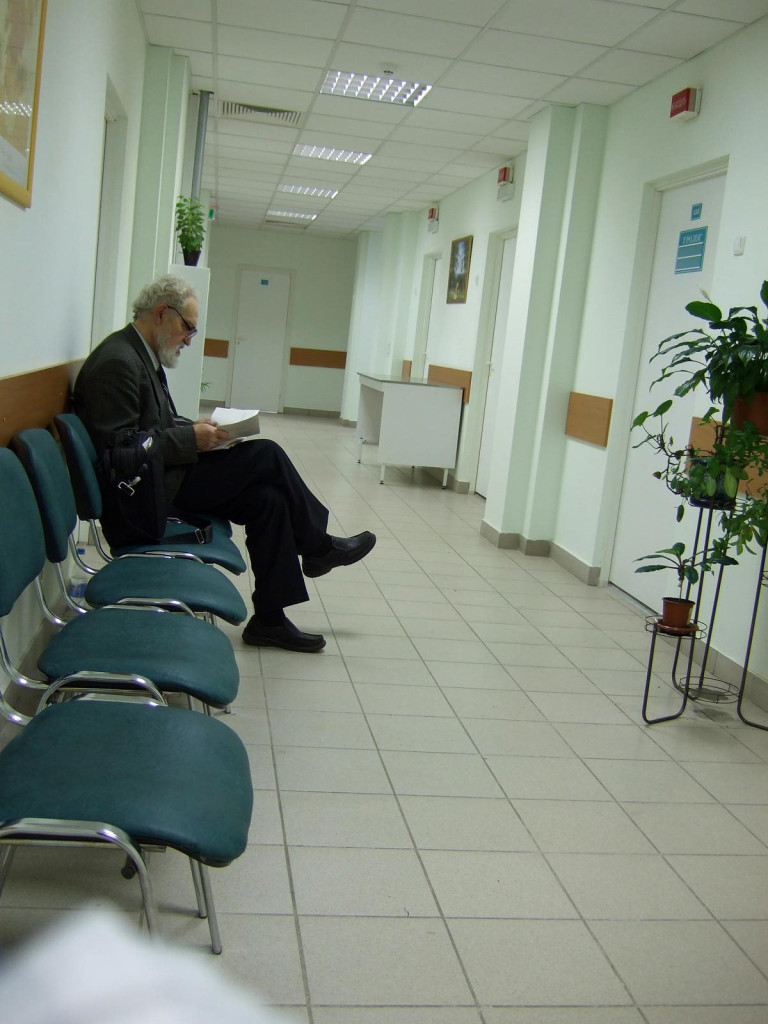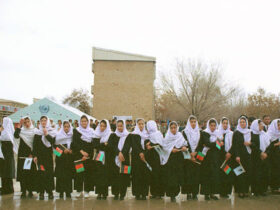
Self-Sufficiency in the Modern World
Today’s world does not easily lend itself to self-sufficiency. Take, for instance, the United States, a country that is agriculturally independent, but relies on Saudi Arabia for its oil. Liberalist theorists assert that economic interdependence is the road to peace, as countries mutually benefit, taking advantage of plentiful resources and exchanging them for goods they need. Upon hearing the word “self-sufficiency,” most would point fingers at either Cuba or North Korea – both of which are economically isolated with only some reliance on foreign imports. However, few would think of Russia as self-sufficient. From oil to wheat, and from timber to automobiles, Russia has mastered the art of producing enough goods to equip a population of 144 million people. Yet in response to sanctions and unfavorable political sentiments in the Western world, Russia is starting to master the art of self-sufficiency in other areas –particularly its pharmaceutical industry.
In the Soviet era, Russia mainly traded with other communist countries, but produced the bulk of their goods, including medicines, domestically. Only after the collapse of the Soviet Union in 1991, did Russia begin to rely on Western medicines, as the West was far more advanced both economically and technologically. Investor and Vice President at Investo, Balaji Viswanathan stated that “except for medicines, none of the other [imports]are too critical to stall an economy. This is why the erstwhile USSR was able to sustain that long alienating the world markets (foreign trade contributed to less than 4% of Soviet’s GDP)”.
However, the one industry that has long relied on foreign imports is now rapidly being propped up by the Russian Ministry of Industry and Trade. On March 11, 2011 then-Prime Minister Vladimir Putin announced the Pharma-2020 plan, “a radical strategy to develop the country’s pharmaceutical industry and diversify the country’s economy through the creation of new jobs and reduction of Russia’s dependency on imports”. It is not a coincidence that the imposition of sanctions by Western countries on Russia has corresponded with the country’s sudden transition to domestic goods.
The Origins of the Sanction War
The consequential sanctions were first imposed with the deadly Ukraine crisis, which first escalated as a result of former President Victor Yanukovich’s decision to take a $15 billion loan from Russia to “move his country toward a planned ‘Eurasion Union’, with Belarus, Kazakhstan, and Russia” instead of having Ukraine join the European Union. Ignoring President Putin’s claims that his country had not mobilized troops to fight against pro-Ukrainian forces in east Ukraine, the Russian military had secured a strong and deadly presence in the Donbass region. While Ukraine was dealing with a weak government and internal turmoil, Russian forces seized the Crimean peninsula, boosting pro-Russian fervor among citizens and asserting their might over Ukraine.
Shortly after this slew of events, Western leaders imposed sanctions in two series. The first targeted members of Putin’s inner circle like President of Rosneft, Igor Sechin, and first deputy chief of the Kremlin staff, Vyacheslav Volodin, as well as senior officials and military leaders. The second series of sanctions, also known as “sectoral sanctions”, hit Russia the hardest, because they prevented financial institutions from lending any money to Russia. Journalist Frances Coppola of Forbes magazine stated that “by imposing sanctions on entities within the financial services and energy sectors, [the]Treasury has increased the cost of economic isolation for key Russian firms that value their access to medium- and long-term U.S. sources of financing”.
In response to these sanctions, Russia imposed import bans of their own in August 2014. Prime Minister Dmitri Medvedev stated that all “beef, pork, fish, fruit, vegetables and dairy products from the European Union, the United States, Canada, Australia and Norway” would be banned. As a result of this “economic isolation,” Russia scrambled to prop up its domestic production in hopes of becoming self-sufficient. The latest industry to be hit by severe import cuts was the pharmaceutical industry, with 80 percent of Russia’s medication being imported from foreign countries. As a result, Prime Minister Medvedev stated that “domestic produce must account for 90 percent of Russian drugstore stocks by 2018”.
Although the Russian government wants to maintain its assertiveness before the West in light of damaging sanctions, such assertion is ultimately hurting its own citizens more severely than Western economies. With regards to bans on imported drugs, those that will be most affected will be Russians with “orphan diseases” or rare illnesses. These patients rely on highly effective medicines that can only be found outside of Russia’s borders and that “can never be certified in Russia because the procedure requires extensive human testing here — which is impossible because there are simply not enough patients”.
Pharma 2020: A Comprehensive Overview
Since its announcement in 2011, the Pharma 2020 plan has not garnered much media attention. Nonetheless, it is one of Putin’s most ambitious plans. While Pharma 2020 will render Russia almost entirely self-sufficient in the pharmaceutical industry, it will also make Russia technologically competitive with the West.
What exactly does this program entail? It essentially consists of three phases, each targeting a specific aspect of the domestic pharmaceutical industry: improved health care for the Russian people, “improved training of doctors”, and improved “international competitiveness of the domestic pharmaceutical industry” by “encouraging the development and production of innovative medications”. The budget for this plan is 188 billion rubles, “80 percent of which is to be invested toward research and the development of new products”. Many large pharmaceutical companies have already begun building facilities around Russia, while others have partnered with Russian companies in joint ventures.
On paper, Pharma 2020 appears to be a much-needed boost to the Russian economy and pace of innovation. However, before Putin coaxes foreign investors and companies back, there must be a dramatic shift in the political climate with the West. Once tensions are eased, Russia may begin making preparations to become an export-oriented hub of innovation.
A Muscovite’s Perspective
One of the people that has experienced the effect of these sanctions first-hand is my grandmother, and lifelong Moscow resident, Raisa Shumilina. In a brief, 30-minute sit-down interview, she shared her thoughts on the import bans, the situation in Crimea, and how these changes have affected her.
As a handicapped pensioner, her medicines are all paid for by the government. She noticed the changes in produce and medicines in 2014, the year that the sanctions were imposed. Ever since then, she has received “50% imported and 50% domestically produced medicines,” compared to the 100 percent foreign-made medicines she used to receive. When questioned about her feelings towards domestically produced medicines, she stated, “I don’t trust their quality. . .maybe I’m wrong, but at this very moment, I’m skeptical.” She admitted that the new medicines had no noticeable effects on her health, but felt it was safer to rely on foreign medicines. If she has the option to, she pays out of pocket just to be able to own or have imported medicines.
Revitalizing a Struggling Economy
Despite the economic uncertainty and political turmoil that Russia has experienced over the last few years, President Vladimir Putin’s approval rating has sky-rocketed to an impressive 89 percent. Igor Yurgens, the chief economist at the Institute of Contemporary Development said, “The consensus of 80 percent of Russians is that we have to reply, that we will fight.” It is not a surprise that so many Russians support their current leader and his United Russia party. With the annexation of Crimea and now with the sudden boost in domestic production of goods, nationalistic fervor is more widespread than ever before, and the “we-will-tough-it-out” sentiments that much of the Russian public has expressed are not without reason. If the Russian government continues to invest in local industries and promote the domestic production of commodities, the Russian economy will eventually stabilize. As inflation rates return to healthy levels, unemployment rates decrease, and living standards improve, hopefully the Russian people will finally be able to enjoy the financial and social stability that they have longed for.
Nevertheless, Russia still has a lot more catching up to do to match the West’s pace of innovation and economic growth. An ambitious, but unrealistic goal, Putin’s Pharma 2020 plan should be postponed to a later date, as it will take many years before Russia fully restore relations with the West and begins to enjoy an adequately stable economy. Although the economy is at a much more stable place than it was in the winter of 2014, it still has a long way to go. With the ruble’s unhealthy dependence on oil prices and the lack of foreign investment, the country will not be able to financially support and promote domestic industries. The abundance of oil means Russia will not abandon the resource so easily, but the lack of foreign investments is a problem that Russian policymakers can solve. Controversial policy moves like the annexation of Crimea and the backing of the Assad regime make Russia a powder keg of instability. To revive the flow of capital, Putin needs to address his critics’ concerns and cooperate with the West, the source of many potential funds. If Putin continues to destabilize his country’s economy with an aggressive foreign policy, Pharma 2020 will never receive enough money to become a reality.
The views expressed by the author do not necessarily reflect those of the Glimpse from the Globe staff, editors or governors.








